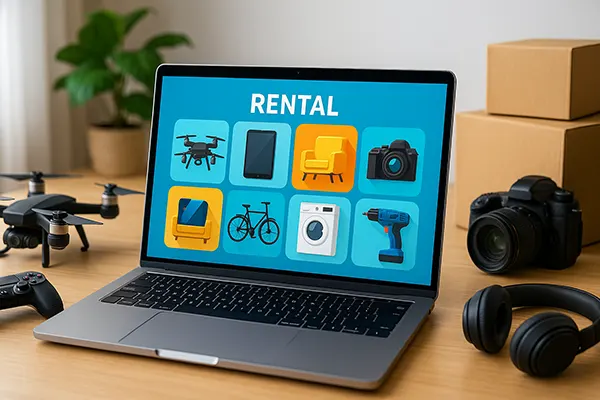Online Rental of Items and Gadgets from Home

The concept of online rentals has transformed the way people use everyday products. Instead of purchasing costly gadgets or equipment that might only be needed occasionally, individuals now have the opportunity to rent them from the comfort of their homes. This model saves money, reduces waste, and offers convenient access to modern technology and household goods. In 2025, the online rental industry has matured, becoming a trusted part of the sharing economy worldwide.
How Online Rental Services Work
Online rental services allow individuals or businesses to offer their items for temporary use. Customers can browse catalogues of available gadgets, furniture, or even household tools, and select what they need for a specific period. Payment is typically processed through secure digital systems, ensuring transparency and safety for both parties.
One of the key aspects of these services is convenience. Instead of going to a physical shop, users can arrange everything online, from selecting the item to scheduling delivery and pick-up. This makes it possible to access products without leaving home.
Rental platforms also incorporate insurance and guarantees. This protects both the owner of the item and the renter, ensuring that any damage or misuse can be fairly addressed without financial loss to either side.
Benefits for Consumers
The primary benefit of online rentals is cost reduction. Many households choose to rent gadgets such as drones, projectors, or power tools instead of buying them outright. This means they only pay for what they use, saving significant amounts of money over time.
Another advantage is flexibility. Consumers can access the latest technology, try it before making a purchase decision, or simply use it when necessary without committing to ownership. This is especially relevant for expensive electronics or specialised tools.
Environmental impact is also reduced. By sharing resources, fewer items are produced and discarded, contributing to a more sustainable lifestyle. This aligns with global efforts to minimise waste and adopt eco-friendly consumption habits.
Popular Categories of Rental Items
By 2025, the most popular rental categories include electronics, home appliances, furniture, and leisure equipment. Electronics such as smartphones, laptops, gaming consoles, and cameras are highly demanded, particularly by users who need them temporarily for work or personal projects.
Home appliances like washing machines, air conditioners, and kitchen devices are also commonly rented. This option is especially practical for students or short-term tenants who do not want to invest in permanent equipment.
Leisure and lifestyle products such as bicycles, fitness gear, and camping equipment are growing in popularity as well. Renting makes it easier for people to try new hobbies without committing to expensive purchases.
Trends in 2025
The industry in 2025 is shaped by the integration of artificial intelligence and smart logistics. AI helps personalise recommendations for renters, suggesting gadgets or items that match their needs and preferences. This improves customer experience and encourages repeat usage.
Subscription models are becoming more common. Instead of paying per item, users subscribe to a package that allows them to swap gadgets or equipment monthly. This provides ongoing access to a variety of products for a fixed fee.
Another trend is the use of blockchain technology for secure contracts and transparent records. This ensures fair dealings and builds trust between renters and owners, an essential aspect of long-term industry growth.

Challenges and Future Prospects
Despite its rapid growth, the online rental industry faces challenges. Ensuring the quality and condition of items is a constant concern, as frequent use may lead to wear and tear. Providers must invest in proper maintenance and transparent descriptions to retain customer trust.
Another challenge is logistics. Timely delivery and efficient pick-up are critical for customer satisfaction. Companies are increasingly adopting smart tracking systems and local partnerships to manage these processes more effectively.
Looking ahead, the future of online rentals appears promising. With greater consumer awareness, advanced technology, and sustainable practices, renting from home is likely to become a standard part of everyday life. This model offers not just convenience, but also a more responsible approach to consumption in the modern world.
The Role of Consumers in Growth
Consumers play a crucial role in shaping the future of the online rental industry. By adopting rental habits, they encourage businesses to expand their offerings and improve service quality. Every transaction contributes to strengthening the market.
Feedback and reviews are equally important. Honest customer experiences help other users make informed decisions and push providers to maintain high standards of reliability and transparency.
Ultimately, the more individuals participate in rentals, the more efficient and affordable the industry will become. This collaborative approach between businesses and consumers ensures ongoing innovation and accessibility for all.
